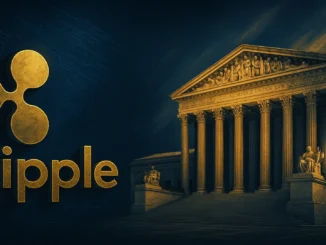
CFTC Chair Calls for Oversight of DeFi Platforms Offering Derivatives
The chairman of the Commodity Futures Trading Commission (CFTC), Rostin Behnam, has reaffirmed that decentralized finance (DeFi) platforms offering derivatives products to U.S. customers fall under the agency’s jurisdiction and must comply with federal registration requirements.
Speaking on Bloomberg’s Odd Lots podcast, Behnam made it clear that DeFi platforms—regardless of being run by code or anonymous developers—are not beyond regulatory reach if they facilitate financial services traditionally overseen by the CFTC.
Regulating the “Code” Behind DeFi
Behnam addressed one of the most debated questions in crypto regulation: how to oversee smart contract–based systems that operate without a centralized entity.
“It’s easy to suggest, ‘Oh, there’s no institution, there’s no individual, it’s just code, you can’t regulate that,’” Behnam said. “But that’s really the wrong set of questions. It’s about what U.S. customers are being offered and exposed to, and who wrote or deployed the code that offers those products.”
The chairman emphasized that if a DeFi product offers derivatives—such as futures or swaps—it falls under the same legal framework that applies to centralized institutions.
“If you are going to offer derivatives to U.S. customers,” Behnam added, “there is a very well-developed, mature legal base and requirements for complying with the law.”
Parallels with Traditional Finance
Behnam also underscored that the U.S. already has a comprehensive financial regulatory system, with each agency responsible for specific asset classes. He believes crypto should fit within that structure rather than require a completely new framework.
“It really falls on what type of asset they are regulating,” Behnam said. “For crypto, we have to use the same playbook we’ve used in the past as we think about policy.”
The CFTC’s stance contrasts with that of the Securities and Exchange Commission (SEC), where chairman Gary Gensler maintains that the existing securities laws are sufficient to regulate most crypto assets—though critics argue that this approach lacks clarity for developers and investors.
Legal Enforcement and New Tools
Behnam’s comments come as regulators experiment with new methods of enforcement in the crypto space. Recently, a law firm made headlines for delivering a legal notice on-chain via an NFT to anonymous developers of a meme coin. The move raises the question of whether agencies like the CFTC might also adopt similar digital enforcement mechanisms.
Global Contrast: Europe Takes the Lead
While the U.S. continues to debate crypto’s regulatory classification, the European Union has taken a decisive step forward. All 27 EU member states have now approved the Markets in Crypto-Assets (MiCA) framework, setting out clear rules for crypto asset issuers, service providers, and stablecoins.
MiCA’s implementation highlights the growing divide between the U.S. and Europe in providing regulatory clarity for the digital asset sector.
Outlook
Behnam’s comments signal the CFTC’s growing determination to assert its authority over DeFi markets, particularly in areas involving derivatives and leveraged trading.
As decentralized platforms continue to evolve, the challenge for U.S. regulators will be to apply traditional laws to a borderless, algorithm-driven financial ecosystem — one that increasingly blurs the line between code and institution.



